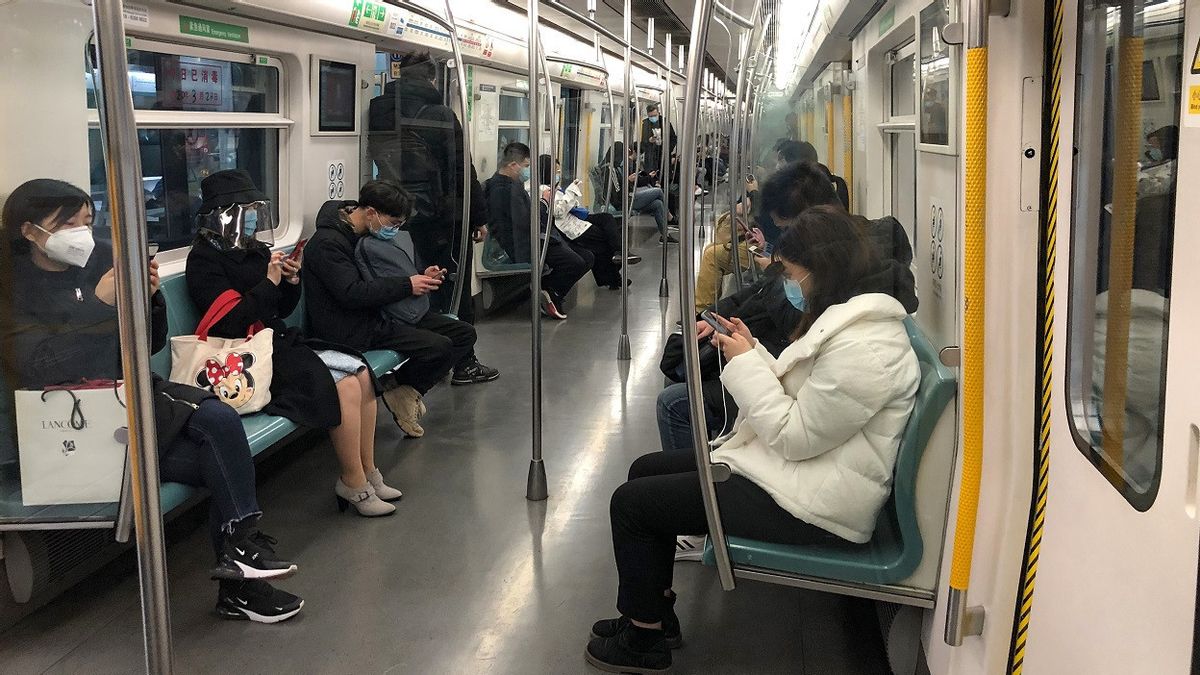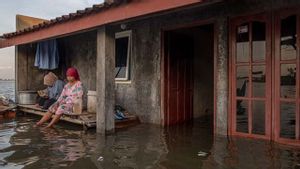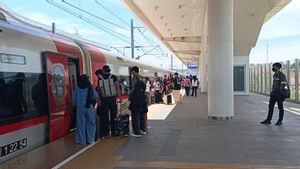JAKARTA - China reported additional COVID-19 cases as it entered its third week of the current outbreak on Monday, while several cities added mass testing rounds in a bid to stamp out the locally transmitted infection.
The highly contagious Delta variant has been detected in dozens of cities since July 20, prompting officials to call on local government authorities to closely track infections and close loopholes in control efforts.
"The weakness of mind must be overcome decisively," the National Health Commission (NHC) said in a statement on Sunday calling for the outbreak to be stopped.
Analysts see the Delta variant as the biggest test of China's zero-COVID strategy since the outbreak early last year. They also hope for a change before the epidemic spirals out of control.
The 125 new infections confirmed on Sunday in mainland China including 94 locally transmitted cases, up from the previous day's figure of 96, with 81 transmitted locally, while the rest were imported from abroad, the NHC said on Monday.

Most of Sunday's local patients were in the central city of Zhengzhou and the eastern city of Yangzhou, according to figures in the government report.
Yangzhou has started its fifth round of mass COVID-19 testing, city authorities said on Monday, as Zhengzhou is expected to complete sample collection for a third round of citywide tests.
Meanwhile Nanjing, which was hit hard in the outbreak that began in late July, has also started a third round of targeted testing in several areas, after three rounds across the city, although since Aug. 2 it has not reported more than five cases per day.
The number of new asymptomatic infections was 39, up from 30 the day before. China does not classify it as a confirmed case. As such, China is currently recording a total of 93,826 since the outbreak began, while deaths remain at 4,636.
Meanwhile, Beijing authorities have tightened restrictions on the entry of people by train, following the new outbreak of COVID-19 in China.
In addition to suspending the sale of train tickets to people from medium or high risk areas or with a history of travel in those areas within 14 days.
Beijing has tightened epidemic prevention and control measures for train passengers, restricting travel out of the capital to strengthen the "safety barrier" against the COVID-19 epidemic.

In a press conference on Sunday afternoon, Beijing officials announced several anti-epidemic measures for train travel in and out of the region, in accordance with the professional guidelines of the Chinese Center for Disease Control and Prevention.
"People from low-risk areas in cities where medium or high-risk areas are located, are also not advised to visit Beijing," the officials said, citing the Global Times.
Railway staff will check the temperatures of passengers entering Beijing and check their health codes. People without a green health code will not be allowed to take the train to Beijing.
On the train, flight attendants will strengthen ticket verification and before the train enters Beijing, the health codes of all incoming and returning passengers will be re-checked. Body temperature will be checked again once the train arrives in Beijing.
To reduce the risk of the epidemic spreading, all train passengers should sit properly, wear masks throughout the journey and reduce mobility on the train, the press conference said.
Beijing residents living or working in units where confirmed cases have been reported are not allowed to leave the city, and people from those areas who absolutely must leave Beijing, are required to pocket the green health code and have a negative nucleic acid test in 48 hours. before the trip.
The new rules also prohibit members of party staff and government organs as well as state-owned companies and institutions in Beijing from being allowed to travel to medium or high risk areas and cities where risk areas are located.
Meanwhile, passengers who are unable to purchase a ticket to Beijing or believe their health code is incorrect, can report via the railway department's hotline. Restrictions on ticket purchases can be lifted once their travel history is verified and their health codes return to green, officials said.
The English, Chinese, Japanese, Arabic, and French versions are automatically generated by the AI. So there may still be inaccuracies in translating, please always see Indonesian as our main language. (system supported by DigitalSiber.id)













